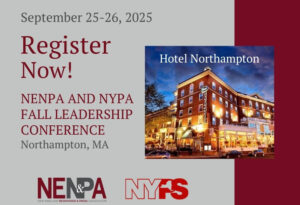 Looking to recharge your newsroom strategy and celebrate the best in New England journalism? Join us for the 2025 Fall Leadership Conference, September 25–26, at the historic Hotel Northampton. Presented by NENPA and the New York Press Association, this conference brings together publishers, editors, and journalists for training, peer-to-peer insights, and an awards luncheon you won’t want to miss!
Looking to recharge your newsroom strategy and celebrate the best in New England journalism? Join us for the 2025 Fall Leadership Conference, September 25–26, at the historic Hotel Northampton. Presented by NENPA and the New York Press Association, this conference brings together publishers, editors, and journalists for training, peer-to-peer insights, and an awards luncheon you won’t want to miss!
⚠️ Important Updates:
- Hotel Room Block Extended: Special rate available until September 5. Secure your stay at the conference hotel before the block sells out.
- Awards Notifications Sent: Recipients of Newspaper of the Year, Publick Occurrences, the A-Mark Prizes, and other honors have been notified. Join us in celebrating the winners!
This year’s program (see highlights below) is packed with strategies and peer-to-peer insights designed to help you tackle the industry’s biggest challenges, from AI in the newsroom to boosting subscriptions, building smarter tech stacks, and growing audience engagement.
🏆 All Newspaper Awards – including Newspaper of the Year, Publick Occurrences, and the new A-Mark Prizes – will be presented at a special Awards Luncheon on Friday, September 26.
👉 Register today to:
- Reserve your spot at the conference
- Guarantee your seat at the awards luncheon
- Lock in your hotel room at the best rate before the Friday, Sept. 5 deadline
If you have any questions about the Conference or Awards notifications, please email info@nenpa.com.
Session Highlights
Thursday, September 25
1:30 – 2:30 p.m.
Elevate Audience Engagement & Subscription Renewals
Aaron Kotarek – The Spokesman Review
Bill Bradley – Subtext
2:45 – 3:45 p.m.
AI in the Newsroom: Enhancing Human Intelligence with AI Tools
Rick Rogers – BLOX
Discover how AI can streamline workflows, SEO headlines, transcription, summarization, and more, while keeping journalists focused on meaningful reporting.
4:00 – 5:00 p.m.
Tech Stacks: Enabling Success, Not Hindering It
Chris Prinos – Indigo Trigger
Learn best practices for optimizing your “Lead-to-Cash” ecosystem and making technology work for you.
Friday, September 26
9:00 – 10:30 a.m.
Going Beyond Email: Newsletters that Drive Engagement & Revenue
Matt Gross – Digital Initiatives
10:45 – 12:00 p.m.
Getting Started with AI Tools for News
Iain Christie – Google News Initiative
Explore AI-powered tools like Gemini, Fact Check Explorer, Pinpoint, and NotebookLM—designed to boost productivity, uncover stories, and grow audience revenue.

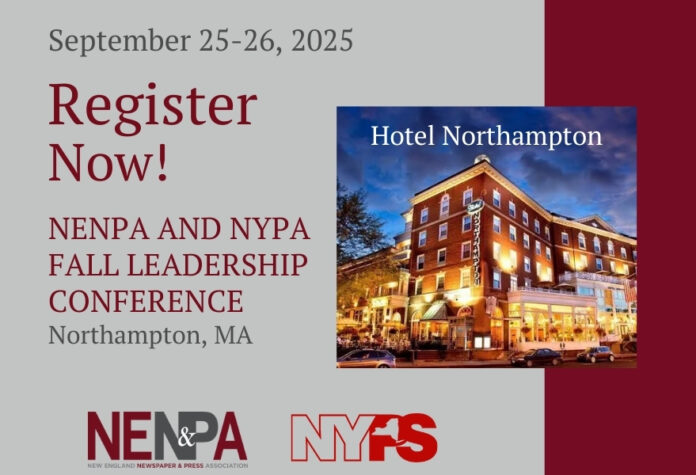

 The journalist meetup series rolls into September with a spirited Trivia Night at The Dubliner—a great chance to unwind after work, swap ideas, and show off your trivia chops with colleagues from across the region.
The journalist meetup series rolls into September with a spirited Trivia Night at The Dubliner—a great chance to unwind after work, swap ideas, and show off your trivia chops with colleagues from across the region.
 Editor & Publisher, in partnership with the Media Job Board and research firm DataJoe, proudly presents the Media Workplace Awards — the only program of its kind dedicated to recognizing the media industry’s best places to work. Whether you’re in print, broadcast, or digital, this is your opportunity to spotlight your company’s culture, attract top talent, and gain third-party validation as an employer of choice.
Editor & Publisher, in partnership with the Media Job Board and research firm DataJoe, proudly presents the Media Workplace Awards — the only program of its kind dedicated to recognizing the media industry’s best places to work. Whether you’re in print, broadcast, or digital, this is your opportunity to spotlight your company’s culture, attract top talent, and gain third-party validation as an employer of choice.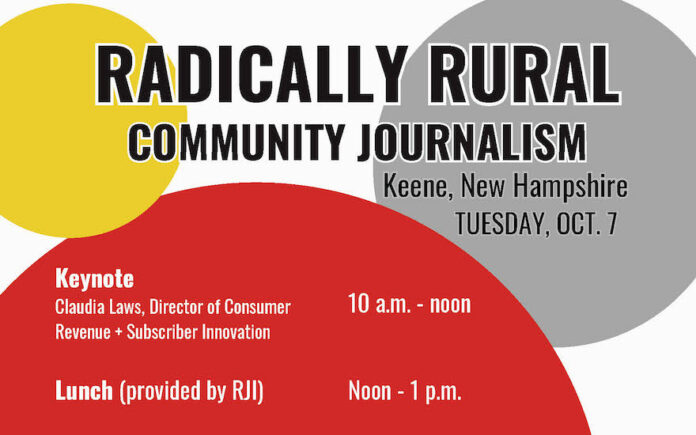
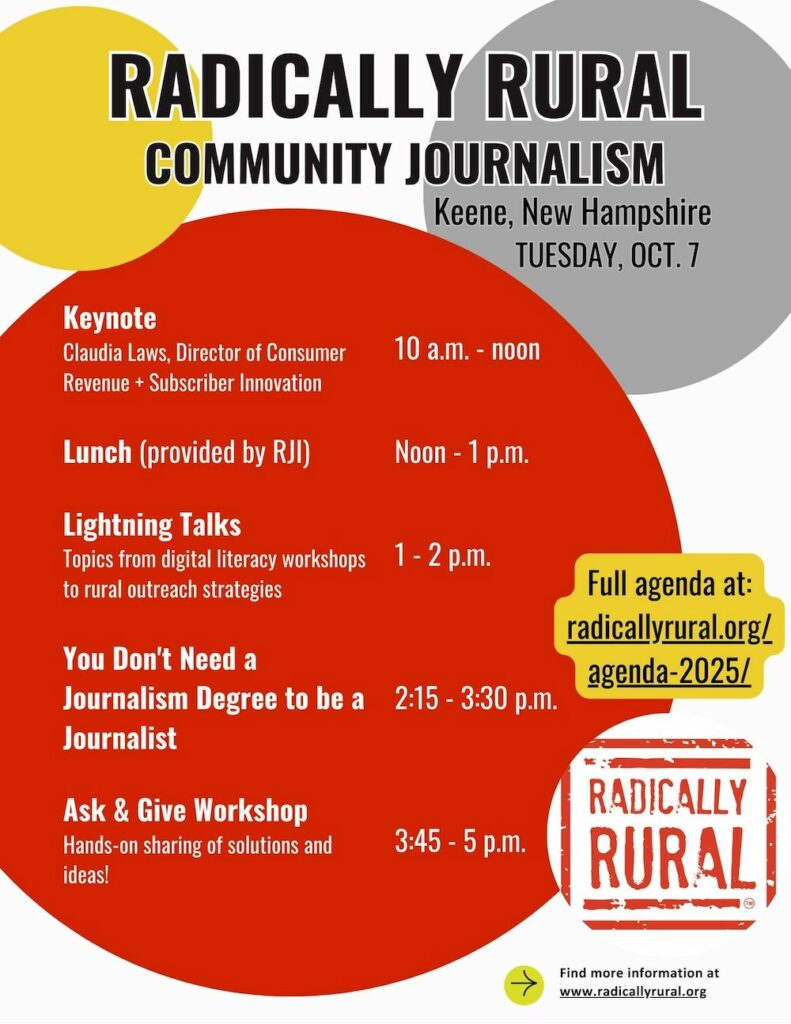 This October, journalists from across New England have a special opportunity to connect, learn, and grow together at Radically Rural 2025: Rural Resonance in Keene, New Hampshire.
This October, journalists from across New England have a special opportunity to connect, learn, and grow together at Radically Rural 2025: Rural Resonance in Keene, New Hampshire.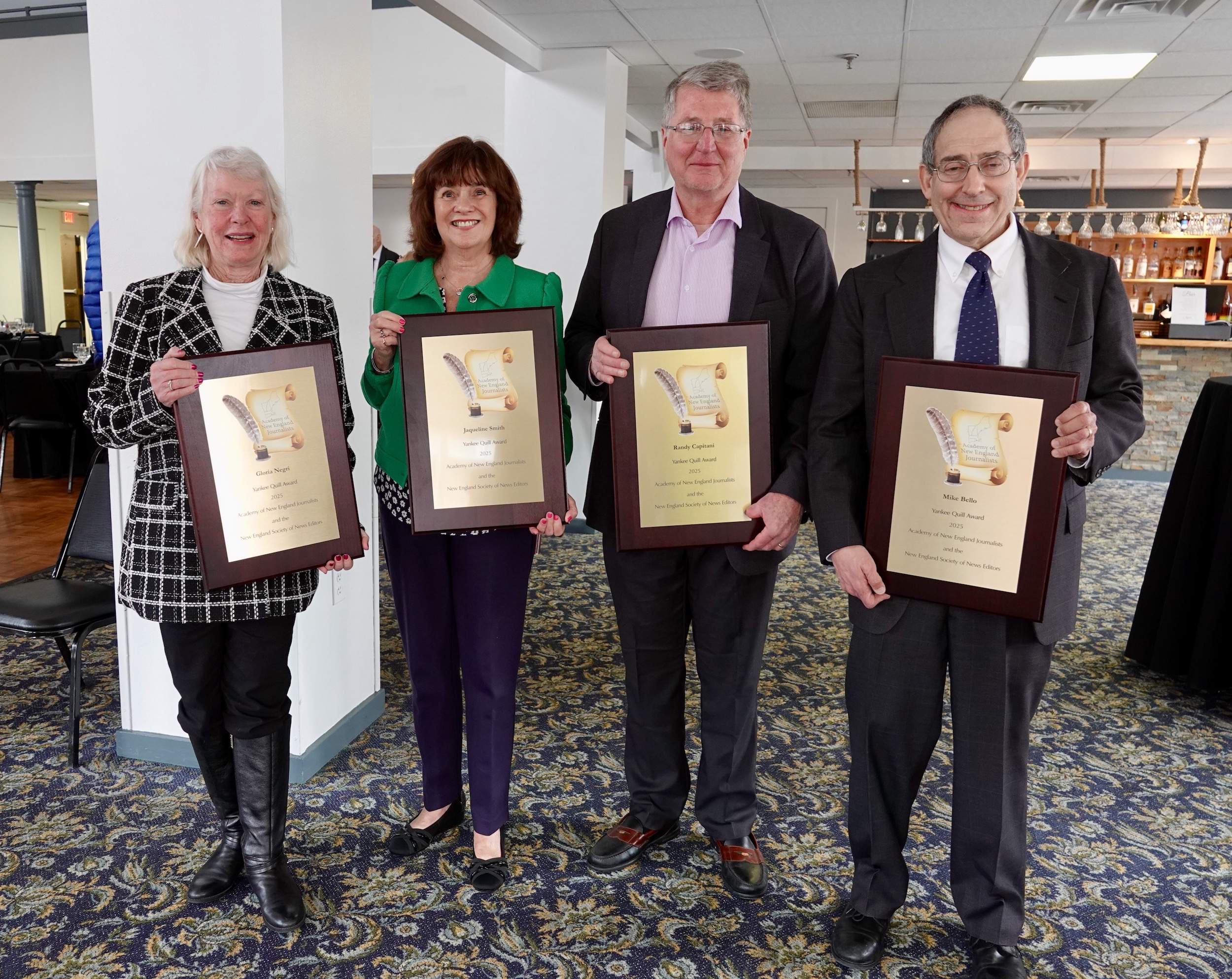

 The Nackey S. Loeb School of Communications is offering a lineup of free and low-cost classes on topics such as writing about personal milestones, making sense of Substack, learning how to make use of AI, and First Amendment rights around protest and assembly.
The Nackey S. Loeb School of Communications is offering a lineup of free and low-cost classes on topics such as writing about personal milestones, making sense of Substack, learning how to make use of AI, and First Amendment rights around protest and assembly.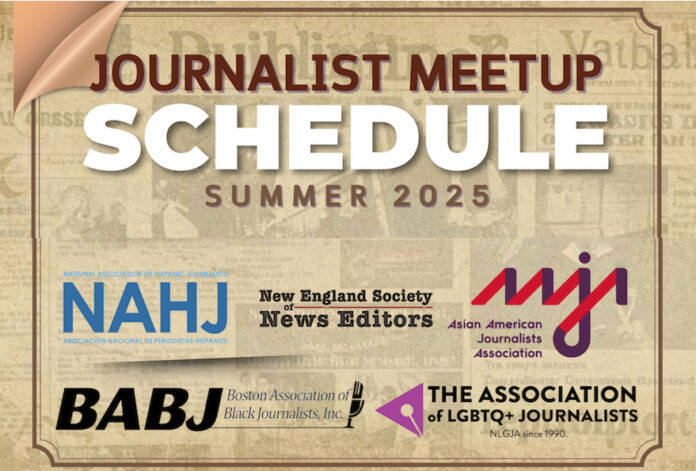
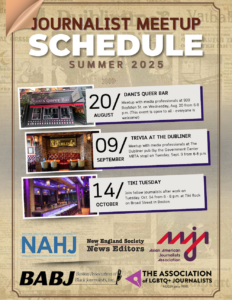 The summer 2025 journalist meetup series is in full swing, bringing together media professionals from across the region for fun, connection, and camaraderie.
The summer 2025 journalist meetup series is in full swing, bringing together media professionals from across the region for fun, connection, and camaraderie.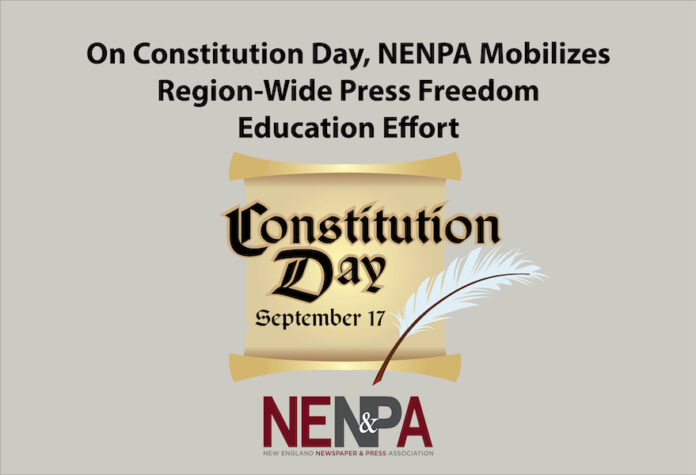
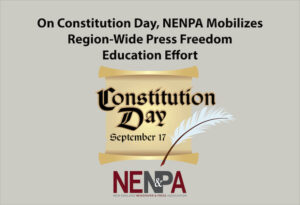 The NENPA Press Freedom and Local News Committee is taking its next major step in protecting press freedom and strengthening local journalism: launching a region-wide public education campaign on Constitution Day, Wednesday, September 17, 2025.
The NENPA Press Freedom and Local News Committee is taking its next major step in protecting press freedom and strengthening local journalism: launching a region-wide public education campaign on Constitution Day, Wednesday, September 17, 2025.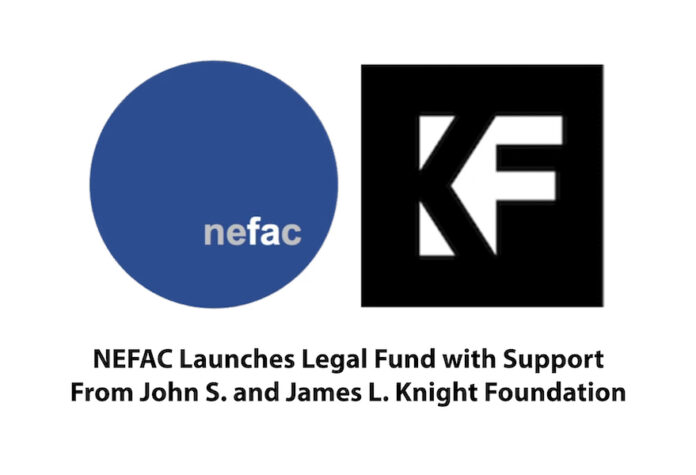
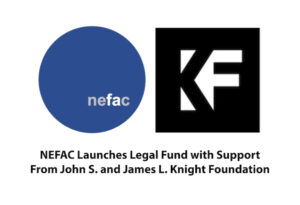 The New England First Amendment Coalition is launching a legal fund to provide support for journalism and open government cases.
The New England First Amendment Coalition is launching a legal fund to provide support for journalism and open government cases.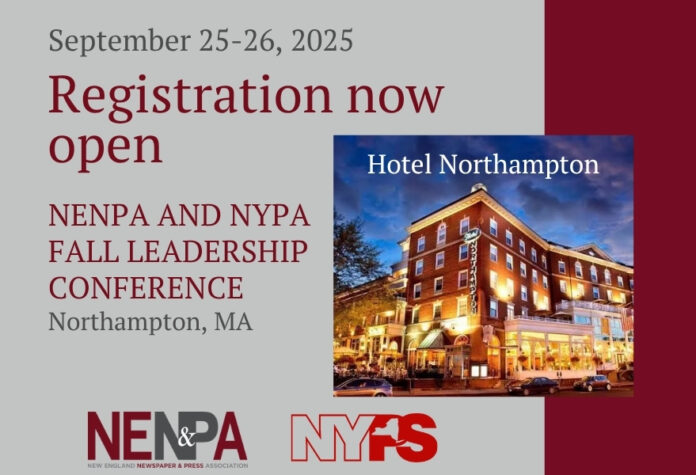
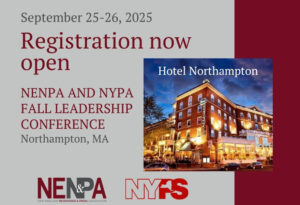 We’re excited to invite you to the 2025 Fall Leadership Conference, hosted jointly by NENPA and the New York Press Association, happening September 25–26 at the beautiful Hotel Northampton in Northampton, Massachusetts.
We’re excited to invite you to the 2025 Fall Leadership Conference, hosted jointly by NENPA and the New York Press Association, happening September 25–26 at the beautiful Hotel Northampton in Northampton, Massachusetts.